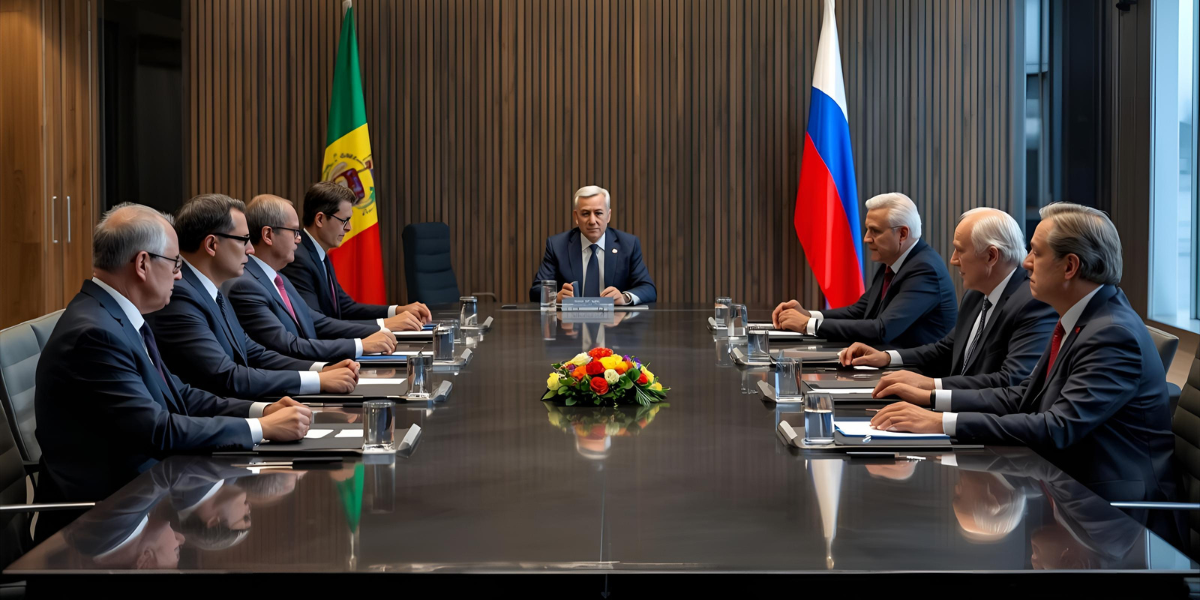Brics leaders: Powerful Reasons for Strong Cooperation Now
In today’s shifting global economy, Brics leaders stand at a decisive crossroads. With rising protectionist policies and trade barriers, their ability to unite becomes a determining factor in shaping future growth. Cooperation among these nations is no longer optional but an urgent necessity to strengthen their global voice and economic stability.
Brics leaders shaping a new global order
Brics leaders are increasingly aware that the international system is leaning toward fragmentation. Protectionism, regional conflicts, and rising nationalism are reshaping alliances. By joining forces, these nations can not only protect their markets but also expand their influence, offering an alternative model for sustainable development. This shared vision helps them counterbalance traditional economic powers while securing better opportunities for their citizens.
Economic cooperation in a protectionist era
As global tariffs increase and free trade agreements weaken, Brics leaders are focusing on creating stronger internal trade networks. They are investing in infrastructure, energy, and digital connectivity that link their economies more closely. This cooperation allows them to reduce dependency on Western markets and build resilience against external shocks. For example, the World Economic Forum highlights how emerging economies can thrive when collaboration replaces isolation.
Innovation and technology as a driving force
Brics leaders understand that future competitiveness depends on technological progress. Joint investments in research, digital infrastructure, and artificial intelligence are becoming priorities. By pooling resources, these countries can bridge innovation gaps and accelerate growth. This strategy also positions them as leaders in shaping global tech standards while offering local solutions tailored to their unique economic landscapes.
Brics leaders enhancing financial stability
Financial collaboration is a key focus for Brics leaders. By coordinating central bank policies and exploring alternatives to the dollar-based financial system, these nations can protect themselves from global market volatility. Initiatives such as the New Development Bank allow member countries to fund critical infrastructure projects independently, ensuring long-term stability and sustainable growth.
Strengthening trade partnerships
Brics leaders are actively negotiating new trade agreements to reduce tariffs and streamline cross-border investments. These efforts encourage local industries, increase job opportunities, and foster a more interconnected economic landscape. By creating predictable trade frameworks, the alliance not only secures domestic markets but also attracts foreign investors seeking stability and collaboration in emerging economies.
Promoting sustainable development
Environmental concerns are increasingly part of Brics leaders’ agenda. Joint projects in renewable energy, water management, and climate adaptation demonstrate their commitment to sustainable growth. Investing in green technologies not only addresses ecological challenges but also positions these nations as responsible global actors. Learn more about sustainable investment strategies at our sustainable development insights.
Boosting cultural and educational exchanges
Brics leaders recognize that strong cooperation extends beyond economics. Cultural and educational exchanges foster mutual understanding, innovation, and talent development. By supporting student programs, research collaborations, and cultural initiatives, these countries build long-lasting ties that reinforce their political and economic alliances.
Strategic geopolitical alignment
In a world marked by shifting alliances and regional conflicts, Brics leaders coordinate on key geopolitical issues. Joint diplomacy efforts help them present a united front on trade negotiations, security challenges, and international policy making. This strategic alignment increases their leverage in global forums, ensuring that their interests are represented effectively.
Building resilience against global crises
Global crises, from pandemics to financial downturns, require collective action. Brics leaders are developing mechanisms for coordinated emergency responses, resource sharing, and economic stimulus programs. By preparing together, these nations minimize risks and ensure continuity in essential services, demonstrating that cooperation is a vital tool for national and regional resilience.
Future vision and global influence
Brics leaders are shaping a vision that extends well beyond their borders. By uniting efforts in economics, technology, and diplomacy, they aim to influence global policies and create a multi-polar world order. This forward-looking approach ensures that their collective voice carries weight in international discussions, promoting a fairer and more balanced global system.
Conclusion: The power of unity
In summary, Brics leaders demonstrate that cooperation is the key to navigating a protectionist global environment. By focusing on economic resilience, innovation, sustainable development, and strategic alliances, these nations position themselves as influential players on the world stage. Their collaboration proves that unity, even among diverse countries, can overcome challenges and drive shared prosperity.




